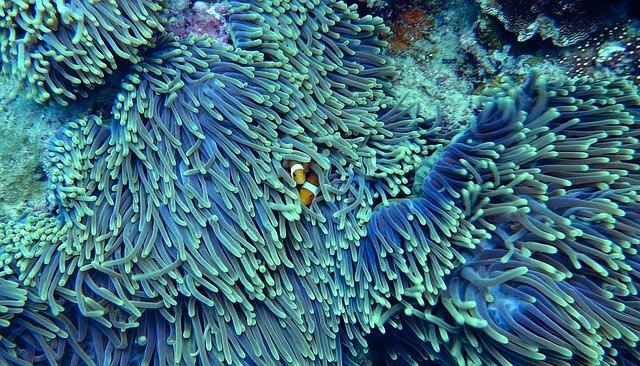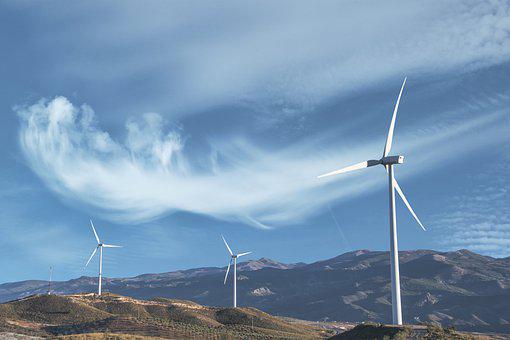INTRODUCTION
Coral Reefs: Coral Reef is defined as an underwater ecosystem. The coral reef consists of two separate terms that are coral and reefs. It is distinguished as an ecosystem in deep water where reef-building corals are present.
Reefs: The reefs are rocks or ridges known as coral polyps that lie underwater formed by the dead skeleton of corals made up of calcium carbonate.
Corals: The corals are invertebrates that specifically live in the deepwater marine ecosystem. They occupy coral polyps known as reefs.
MAJOR CORAL REEFS OF THE WORLD
Major coral reefs of the world are usually found in tropical oceans. Few of the major coral reefs in the world are described below with their locations.
| Major Coral Reefs in the World | Location |
| Great Barrier Reef | The Coral Sea, Coast of Queensland, Australia |
| Apo Reef | Mindoro Strait, Philippines |
| Belize Barrier Reef | Belize |
| Coral Triangle | Solomon Islands, Indonesia, Timor-Leste, Malaysia, Philippines, and Papua New Guinea |
| Florida Keys | The Atlantic Ocean and Gulf of Mexico, United States |
| New Caledonian Barrier Reef | New Caledonia in the South Pacific |
| Red Sea Coral Reef | Egypt, Israel, Eritrea, Sudan, and Saudi Arabia |
| Amazon Reef | The Atlantic Ocean, the coast of northern Brazil, and French Guiana |
| Bar Reef | Kalpitiya peninsula, Sri Lanka |
| Mesoamerican Reef | The Caribbean Sea, Cost of Honduras, Belize, Mexico, Guatemala |
Read another related article: What Are Phytoplankton And How They Benefit Our Environment?
IMPORTANCE OF CORAL REEFS
Coral reefs are widely known as a diverse ecosystem on Earth. The importance of coral reefs is discussed below.
1. Habitat to Diverse Marine Organisms: Coral reefs have ecological importance as they provide habitats to diverse marine organisms.
2. Nutrient Recycling: The coral reefs help in nitrogen and carbon fixation, ultimately leading to nutrient cycling. They provide nutrients to the marine food chain.
3. Fisheries Industries: A diverse variety of juvenile fishes are present in coral reefs. The fisheries industries are dependent on coral reefs for revenue generation.
4. Coastlines Protection: The coral reefs protect coastlines from natural catastrophic events such as tropical storms, waves, etc.
5. Education: The coral reefs hold great importance for research and education purpose because there are more biodiversity per unit area than any other ecosystem.
Also read: Marine Pollution – Its Risky Effects on Marine Life & Humans
CAUSES OF CORAL REEF DESTRUCTION
Coral reefs are subjected to degradation due to many reasons. Few reasons are listed below.
1. Coral Bleaching: The changing climate warms the ocean water leading to coral bleaching. The coral expels algae due to warmer water and turns completely white.
2. Recreational Activities: The coral reefs are under stress due to increasing tourism. Breaking any part of reefs causes corals to react and often leads to coral bleaching.
3. Marine Pollution: Marine pollution such as oil spills is dangerous not only for coral reefs but other marine organisms too.
4. Sedimentation: The increasing deposition of sedimentation onto coral reefs is another factor that is responsible for coral reef destruction.
5. Coral Mining: Coral mining is destroying coral reefs. The dynamites are used to blast massive areas of coral reefs.
Also check out: World Fisheries And Impacts Of Fishery Over-Exploitation
EFFECTS OF CORAL REEF DESTRUCTION
The destruction of coral reefs is negatively impacting the ecosystem of the Earth. Effects of coral reef destruction are mentioned below.
1. Loss of Habitat for Marine Organisms: Marine organisms are losing their habitats due to coral bleaching and mining.
2. Loss of Biodiversity: Due to habitat loss, many species are unable to survive in the Warmer Ocean and ultimately leading to marine biodiversity loss.
3. Ecological Disaster: The destruction of coral reefs may result in ecological collapse or ecological disaster because the ocean may not store carbon anymore.
4. Economy: The economy is getting affected due to the loss of fish species living in coral reefs.
5. Coastline Destruction: The coastlines are becoming susceptible to the damaging effects of catastrophic events due to the destruction of coral reefs.
You might also like: Impact of Marine Species Harvesting Industry on Environment
SOLUTIONS OF CORAL REEF DESTRUCTION
The coral reefs can be protected by adopting multiple preventive measures that are listed below.
1. Eco-friendly Transportation: In order to prevent the impacts of climate change, eco-friendly transport should be used that causes less emission of greenhouse gas.
2. Avoid Application of Fertilizers: The application of fertilizers should be avoided because fertilizer runoff also damages coral reefs.
3. Control Water Pollution: Controlling water pollution due to oil spills and wastewater runoff can save coral reefs.
4. Sustainable Practice of Fisheries: It is important to follow the sustainable practice of fisheries. Overfishing is also destroying coral reefs.
5. Marine Protected Areas: The creation of marine protected areas could be a possible solution to save coral reefs from environmental degradation.
6. Opt for Coral Gardening: Coral gardening is a great way to help restore coral reefs. To know more about it: What Is Coral Gardening And Can It Help Save Coral Reefs?.
Also check out: UAE-Israel Oil Pipeline Deal Can Destroy Red Sea Coral Reefs
I hope you all liked this post! Please comment below if you have any suggestions, comments, or feedback! We at #envpk love hearing from our readers! Thanks!




